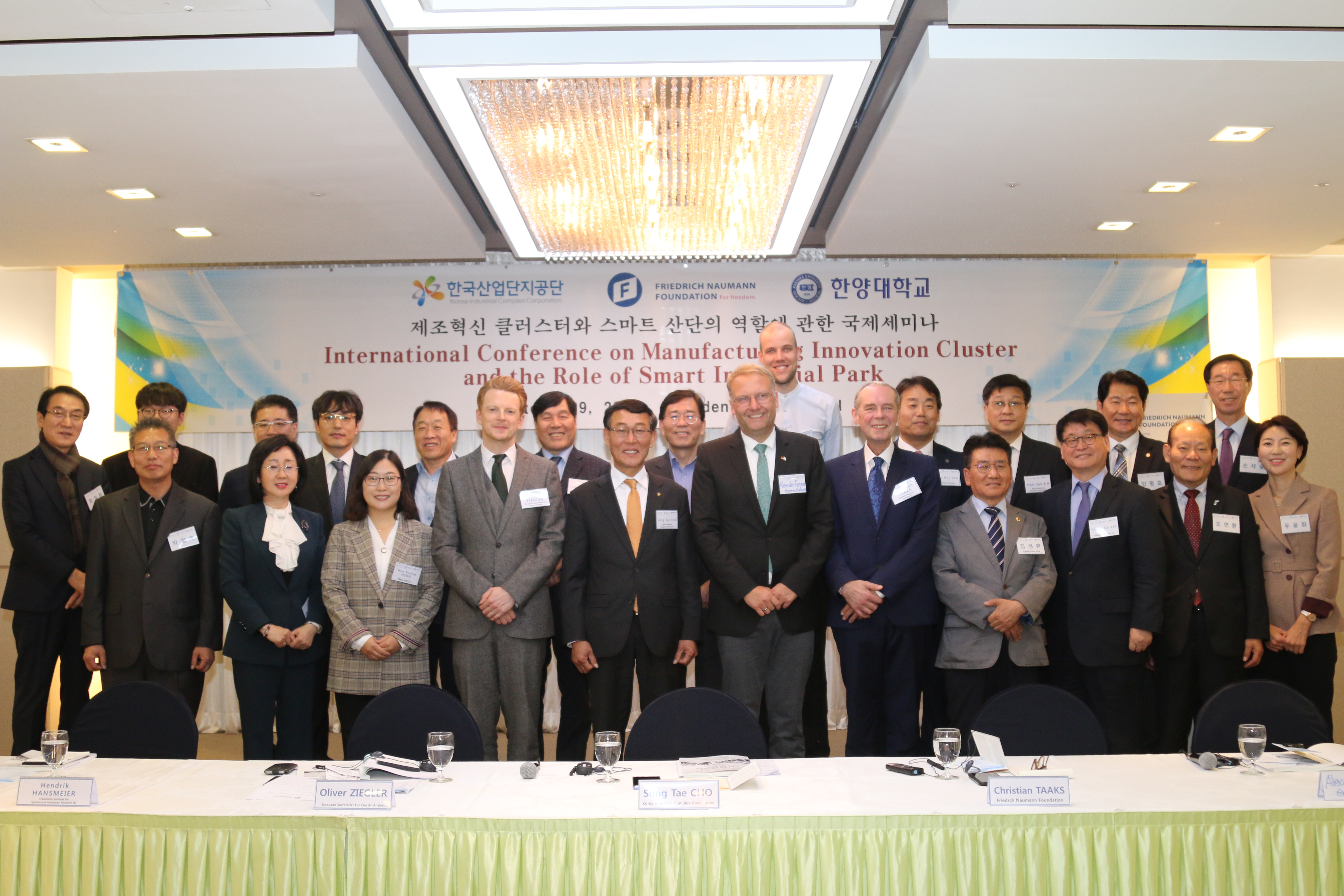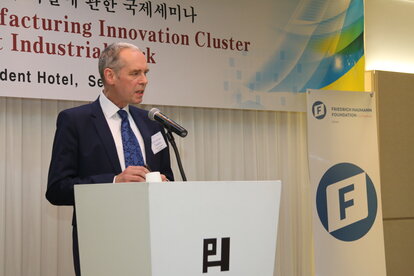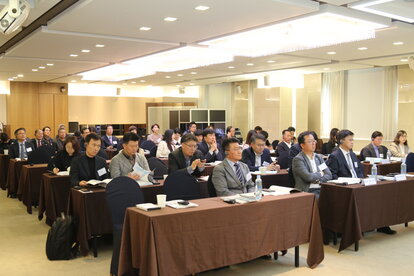International Conference on Manufacturing Innovation Cluster

What are the changes and challenges coming from the 4th Industrial Revolution brought to the businesses? To what extent could local governments play a role in their regional economy, and what kind of new roles should industrial clusters represent to promote business innovations in the era of the 4th Industrial Revolution?
To answer the above questions, Friedrich Naumann Foundation for Freedom and its long-term partner, the Center for Local Autonomy (CLA) at Hanyang University, co-organized an “International Conference on Manufacturing Innovation Cluster and the Role of Smart Industrial Park” on October 29th.

After warm welcoming remarks by Dr. Christian Taaks, the Head of Office of FNF Korea, and Gyu Yeon Hwang, the President of Korea Industrial Complex Cooperation, Alexander Renner from the German Embassy gave a congratulatory address, followed by a short introduction into the topic and the aim of the conference.
As the first presenter of the session “Manufacturing Innovation Clusters in Europe and Germany”, Dr. Oliver Ziegler of the European Secretariat of Cluster Analysis (ESCA) and Institute for Innovation and Technology (iit) gave a lecture about the current trends in cluster policies in Europe, such as Digital Transformation and Green Transition. Furthermore, he introduced the European Cluster Collaboration Platform and invited the Korean participants to be part of the platform to cooperate with Europe and to profit from the exchange.

The second presenter of the first session was Hendrik Hansmeier from the Fraunhofer-Institute Germany, who lectured about the horizontal collaboration within clusters and showed best practices in Germany. After introducing the concept of clusters, he pointed out the advantages of cooperation between companies and how clusters affect the regional economy.
It followed an interesting discussion with Korean CEOs of different companies about the avoidance of the conflict of interests, the importance of trust during cooperation, the funding of the clusters, and the possible side effects as well as downsides of clusters.
The second session was about the role of smart industrial park and manufacturing innovation. Hee Tak Ha from Bosch and Min Soo Oh from Siemens gave an interesting insight into their strategies and showed how they transform the companies into smart factories. The following discussion focused on the differences between SMEs and big companies and the challenges of Industry 4.0, such as labor loss.
All in all, the conference was a great success. The participants shared best practices, discussed the common challenges, and suggested some liberal solutions to better harness the revolutionary digital transformation.